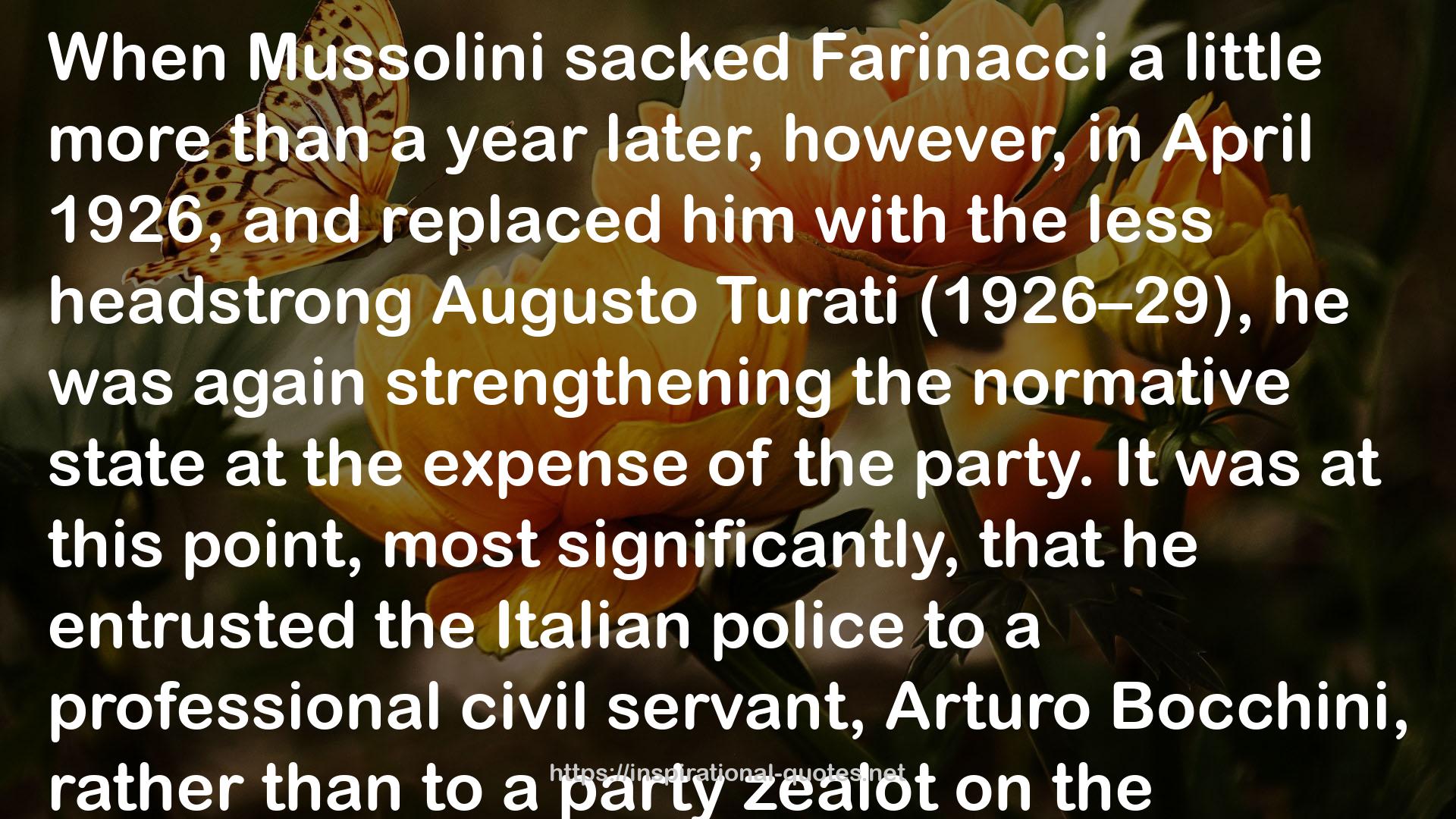" When Mussolini sacked Farinacci a little more than a year later, however, in April 1926, and replaced him with the less headstrong Augusto Turati (1926–29), he was again strengthening the normative state at the expense of the party. It was at this point, most significantly, that he entrusted the Italian police to a professional civil servant, Arturo Bocchini, rather than to a party zealot on the Himmler model. Operating the all-important police force on bureaucratic principles (promotion of trained professionals by seniority, respect for legal procedures at least in nonpolitical cases) rather than as part of a prerogative state of unlimited arbitrary power was Italian Fascism’s most important divergence from Nazi practice. "
― Robert O. Paxton , The Anatomy of Fascism
